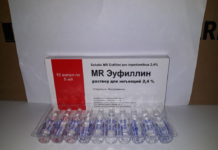Nausea, commonplace indigestion, heaviness, and heartburn are far from a complete list of the unpleasant symptoms that accompany a woman while carrying a child. Many expectant mothers wonder what medications are allowed to take in order to alleviate the condition and prevent its further deterioration. Is it possible to use enzyme preparations in the treatment of pancreatic insufficiency, in particular, Pancreatin during pregnancy?
Material Content:
Can I take pancreatin during pregnancy in the 1st, 2nd, 3rd trimester
When carrying a child, the digestive problems that have arisen should be solved by adjusting the nutrition system. It is better to eat food up to six times during the day in small parts, refusing junk food: fried, spicy, fatty and exotic dishes, fast food, an abundance of sweets and flour. If a woman had problems with the pancreas before pregnancy, most likely, pancreatitis will make itself felt in this difficult period for the future mother's body.
If there is heartburn, heaviness in the stomach, problems with bowel movements, a pregnant woman should consult a doctor. It is impossible to prescribe medications for oneself that compensate for the lack of enzymes. Only a doctor can determine the degree of neglect of the disease and the dosage of medications.
"Pancreatin" is considered a safe drug, it can be used at different stages of pregnancy.This medicine does not contain toxic components that can have a teratogenic effect.
The composition (active substance) of the drug
Pancreatin tablets consist of several components, the main of which are animal enzymes amylase, lipase and protease. Each of them has its own purpose. Working in combination, these substances have a positive effect on the functioning of the digestive tract.
- Amylase is involved in the breakdown of carbohydrates.
- Lipase dissolves, separates and digests fats.
- Proteolytic enzymes are responsible for protein metabolism in the body.
In which cases a drug is prescribed
This enzyme preparation is prescribed for insufficient exocrine pancreatic function, as well as for dietary errors. The composition of the medication also includes the trypsin substance, which reduces the intensity of pain in the epigastric region.
Gastroenterologists advise pregnant women to use "Pancreatin" in therapy for such digestive organ dysfunctions as:
- insufficient digestion of food;
- dyspepsia, manifested in the form of pain in the abdomen, heartburn, nausea;
- disruption of the gallbladder;
- overeating;
- chronic pancreatitis;
- inflammatory diseases of the digestive tract;
- insufficient chopping of food in case of violations of the lower jaw.
Doctors also advise taking this drug for poisoning after relieving acute symptoms of the inflammatory process.
Instructions for use at different stages of pregnancy
You need to take the drug in accordance with the scheme and in the doses prescribed by the attending physician.
The instructions for use indicate that during pregnancy at the same time you can drink a maximum of two tablets of "Pancreatin". The drug is taken up to four times a day with food or immediately after a meal.
- In the first trimester of gestation, during the period when the future organs of the baby are laid, obstetrician-gynecologists advise to refrain from taking any medications (except vitamin complexes). If there is an urgent need to use an enzyme preparation, this can be done once, without exceeding the indicated dosage.
- In the second trimester, Pancreatin and its analogues are allowed for use after consultation with a gastroenterologist who will develop a therapy regimen based on the individual characteristics of the mother’s body and the course of pregnancy.
- At later stages of gestation, the growing uterus begins to squeeze the digestive organs of the woman, which negatively affects their normal functioning. Therefore, in the third trimester, doctors are advised to take Pancreatin most often.
Drug interaction
The drug prevents the absorption of iron, therefore, after the abolition of the enzyme medication, it is advisable not to forget about taking special vitamin-mineral complexes.
It makes no sense to drink "Pancreatinum" during pregnancy in conjunction with drugs whose action is aimed at reducing acidity. With this combination, the digestive agent will be ineffective.
Contraindications, side effects and overdose
Speaking about the use of the drug by women bearing a child, it must be remembered that in the early stages of pregnancy it is better to refuse to take Pancreatin or to minimize the dose of the drug.
In general, the medication has the following contraindications:
- individual hypersensitivity reaction to any of the elements that make up the drug;
- inflammatory process in the pancreas in the acute stage;
- bowel problems.
When using Pancreatin, side effects of the drug may also appear, which are so pronounced that the question of drug withdrawal is raised.
Sometimes there are:
- rash, pruritic dermatoses;
- intestinal obstruction;
- a feeling of heaviness in the abdomen, attacks of nausea and vomiting;
- malabsorption of vitamin B9, necessary in the early stages of pregnancy for normal fetal development.
According to clinical studies, side effects from taking the drug occur infrequently, but in the presence of concomitant diseases of the digestive system, one should bear in mind the possible deterioration of the condition and weigh the likely risks.
If you use "Pancreatin" in excess of the recommended dose, an excess of uric acid is fixed in the blood, which can cause the formation of kidney stones. When this symptom appears, it is urgent to stop taking the drug.
Pancreatin Analogs
Pancreatin tablets, if necessary, can be replaced by analogs that are exact in composition, which can differ only in the dose of the active substance. Often they have a higher price, but are popular among consumers because of active advertising.
The full analogs of Pancreatin include:
- Mezim Forte;
- "Festal";
- "Panzinorm";
- Pancreasim
- Penzital;
- Enzistal;
- "Creon 10,000";
- Enzibene 10,000;
- Mikrazim;
- "Pangrol."
When using any of the drug analogues during pregnancy, you must first consult with your doctor in order to choose the right dose and eliminate the possibility of side effects.



















